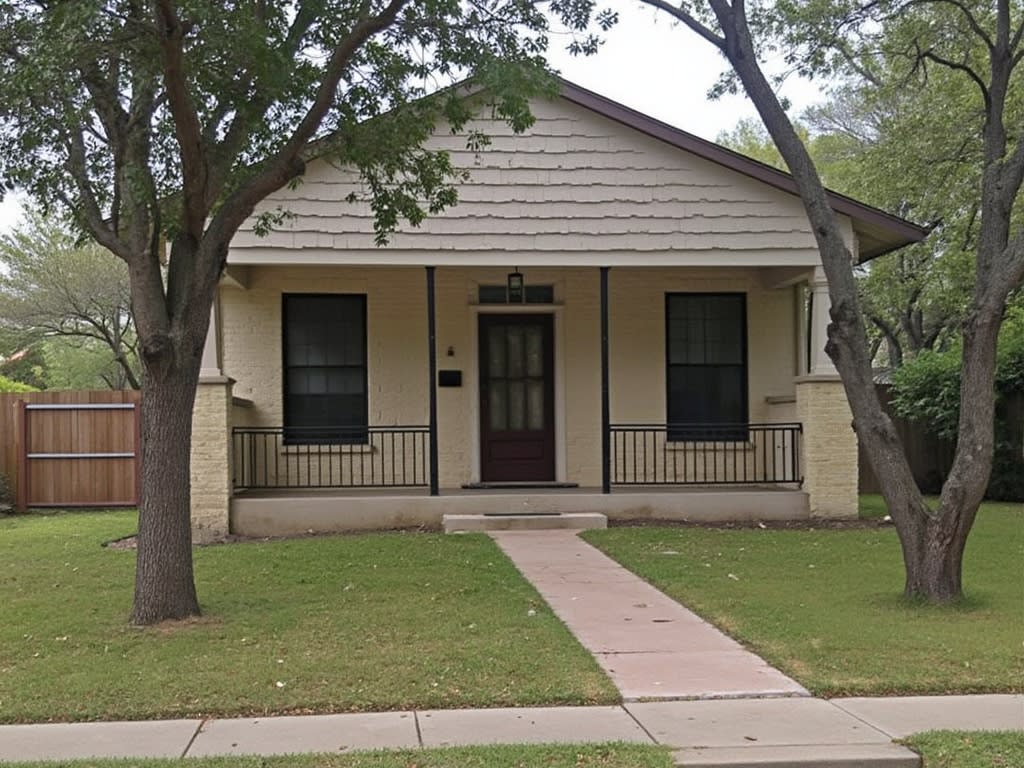Selling an inherited house in San Antonio presents several options, from rapid cash sales with investors to traditional listings with real estate agents. The local market lets you pick between house selling solutions in San Antonio who’ll take properties as-is, or a standard 30-90 day process where real estate agents can often get higher sale prices.
Key Takeaways:
- Cash buyers complete deals in 7-30 days and accept properties as-is, while real estate agents typically need 30-90 days but can achieve better prices
- Texas probate rules require completion within four years of death, including court validation of the will and executor appointment
- The stepped-up basis tax rule adjusts the property’s tax basis to its fair market value at death, reducing potential capital gains taxes
- I recommend checking BBB accreditation and ensuring at least 5 years of local market experience when choosing a cash buying company
- Properties without wills need probate court oversight to establish ownership and assign an administrator before any sale can proceed
Quick Solutions for Selling Your Inherited San Antonio House
Cash Buyer Options
San Antonio’s active real estate investment scene offers multiple rapid-sale paths for inherited properties. Cash buyers represent the fastest route, with transactions typically closing in 7-30 days. I’ve identified three main types of cash buyers in the local market:
- House flippers who renovate and resell properties
- Buy-and-hold companies looking to build rental portfolios
- iBuyers using technology to make instant offers
Traditional Real Estate Route
Working with a licensed real estate agent provides a structured selling process, though it takes longer at 30-90 days on average. While this method might fetch a higher sale price, you’ll need to factor in agent commissions, potential repair costs, and staging expenses.
The choice between quick cash sales and traditional listings depends on your priorities. Cash buyers excel in speed and simplicity – they’ll purchase the house as-is, handle all paperwork, and often cover closing costs. This option particularly suits inherited houses needing repairs or those looking to avoid the hassles of traditional sales.
Traditional agents shine in maximizing sale price through proper marketing and negotiation, making them ideal if time isn’t your primary concern. Their expertise can prove valuable in San Antonio’s competitive market, especially for inherited properties in good condition.

Understanding Texas Probate Requirements Before Selling
Key Probate Filing Steps
Texas law enforces strict probate timelines and procedures that affect selling inherited property. I recommend starting the process early since there’s a four-year deadline to file probate after death. You’ll need to submit the will to the probate court in the county where the deceased lived.
Here are the essential requirements to handle before listing the property:
- Get the will validated by the court to confirm the deceased was of sound mind
- Secure appointment as executor or administrator through court approval
- Send official notices to any potential creditors
- Pay off outstanding debts from the estate
- Obtain court permission before selling the property during active probate
Remember that skipping any of these steps could invalidate a future sale. Working with a probate attorney helps ensure you meet all legal obligations while moving efficiently through the process.
https://www.youtube.com/watch?v=n_9ro9Dlcfs
Tax Benefits and Considerations When Selling Inherited Property
Understanding the Stepped-Up Basis
The tax code provides a major advantage through the stepped-up basis rule. This means the property’s tax basis adjusts to its fair market value on the date of death, minimizing potential capital gains taxes. I can help you get an accurate basis value through a professional appraisal.
Key Tax Implications
As a Texas resident, you won’t face state inheritance taxes on your inherited property. However, federal estate taxes could apply if the total estate exceeds $12.92 million (as of 2023). Capital gains taxes are calculated using the stepped-up basis rather than the original purchase price, which often results in significant tax savings. Selling within the first year after inheritance can provide additional tax advantages by limiting property value appreciation and reducing potential capital gains exposure.
Selling to Cash Buyers vs. Traditional Real Estate Agents
Cash Buyer Benefits
Direct cash buyers can close on your inherited San Antonio property in as little as 7 days. I’ve found they’re ideal for sellers who need quick resolutions or own homes needing repairs. You won’t need to spend money fixing the property since cash buyers purchase houses as-is. They’ll also cover closing costs, eliminating extra expenses from your plate.
Traditional Agent Approach
Working with real estate agents typically results in higher sale prices through Multiple Listing Service (MLS) exposure. However, you’ll pay commission fees and likely need to make repairs before listing. Here’s how different cash buyers operate:
- House flippers buy at 60-70% of market value, renovate quickly, then resell for profit
- Buy-and-hold investors look for long-term rental properties and offer fair market prices
- iBuyers use automated valuation models for instant offers on well-maintained homes
Each option serves different seller needs. Cash buyers fit those wanting speed and simplicity. Traditional agents suit sellers focused on maximum profit and willing to wait. I recommend evaluating your timeline, property condition, and financial goals before choosing a path. Remember that working with agents requires more time but could net you 10-15% more on your sale price.
We Buy Houses’ Company Selection and Process
Selecting a Qualified Buyer
I recommend checking BBB accreditation status as your first step in finding a trustworthy house buying company. Look for companies with at least 5 years of local San Antonio market experience and multiple positive customer testimonials. These reviews should specifically mention fair pricing and smooth transactions.
Transaction Steps
The property evaluation starts with a brief walkthrough assessment, leading to a same-day cash offer. Here’s what you’ll need for a successful sale:
- Proof of inheritance documentation
- Property deed and title information
- Recent tax statements
- Signed purchase agreement
- State-mandated disclosure forms
- Transfer documents from the title company
The negotiation stays straightforward – most companies present their best offer upfront based on current market conditions and repair costs. You’ll have the opportunity to review all paperwork with your attorney before signing, ensuring your interests stay protected throughout the transaction.
Selling Without a Will or As-Is
Selling a Property As-Is
Selling an inherited house as-is offers significant advantages, especially for properties requiring extensive repairs. I’ve found that as-is sales attract cash buyers and investors who’ll purchase the property in its current condition. This means you won’t need to spend money on renovations or updates before selling.
Handling Sales Without a Will
If there’s no will, you’ll need to go through probate court to establish property ownership. The court will appoint an administrator to manage the estate’s distribution. Here are the key steps in this process:
- File an application for administration with the probate court
- Obtain a property appraisal from a certified appraiser
- Clear any existing property liens
- Secure court approval for the sale
- Complete title clearance procedures
The process typically requires legal guidance to ensure proper handling of documentation and court requirements. With proper preparation, even properties without wills can be sold efficiently through the right channels. Understanding how house inheritance works can help navigate this complex process.


